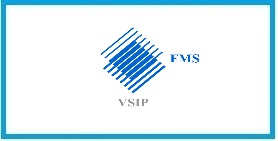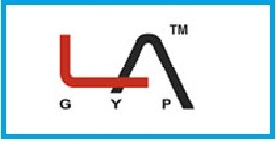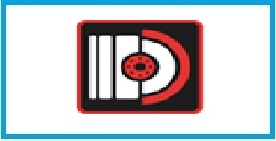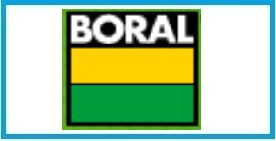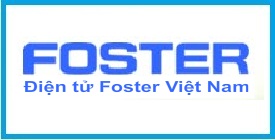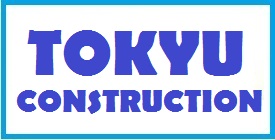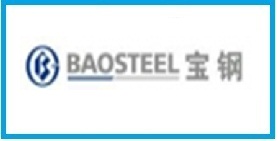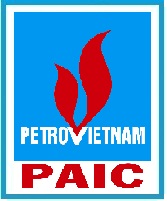 0936 1111 82
0936 1111 82Decree 41/2013/ND-CP detailing the implementation of article 220 of the labor code
Decree 41/2013/ND-CP detailing the implementation of article 220 of the labor code on the list of units using laborers which may not go on strike and the settlement of requests of labor collectives in those units
|
THE GOVERNMENT |
SOCIALIST REPUBLIC OF VIET NAM
|
|
No. 41/2013/ND-CP |
Hanoi, May 08, 2013 |
DECREE
DETAILING THE IMPLEMENTATION OF ARTICLE 220 OF THE LABOR CODE ON THE LIST OF UNITS USING LABORERS WHICH MAY NOT GO ON STRIKE AND THE SETTLEMENT OF REQUESTS OF LABOR COLLECTIVES IN THOSE UNITS
Pursuant to the Law on Government organization dated December 25, 2001;
Pursuant to the Labor Code dated June 18, 2012;
At the proposal of Minister of Labor, War Invalids and Social Affairs;
The Government promulagted the Decree detailing the implementation of article 220 of the Labor Code on the list of units using laborers which may not go on strike and the settlement of requests of labor collectives in those units,
Article 1. Scope of regulation
This Decree provides for the list of units using laborers which may not go on strike and the settlement of requests of labor collectives in those units.
Article 2. Subjects of application
1. Employers, employees, grassroots trade union executive committees and direct superior trade union executive committees in case grassroots trade unions have not been established in units on the list of those which may not go on strike.
Units using laborers which may not go on strike comprise enterprises, agencies, organizations or parts of enterprises, agencies or organizations hiring laborers, employing laborers as prescribed by labor law operating in sectors and fields that are essential in the national economy which the strike may threaten to security, national defense, health, public order, including:
a. Power production with large capacity, electronic transmittion and moderation of the national electrical system;
b. Oil and gas exploration and extraction; production and provision of gas;
c. Assurance of air safety, maritime safety;
d. Provision of telecommunication system infrastructure; postal services for state agencies only;
dd. Provision of clean water, drainage and environmental hygiene in central-affiliated cities
e. Directly serving for security and defense.
2. Agencies, organizations and individuals that are related to implementation of the list of units using laborers which may not go on strike and the settlement of requests of labor collectives in those units.
Article 3. The list of units using laborers which may not go on strike
To promulgate together with this Decree the list of units using laborers which may not go on strike.
Article 4. The settlement of requests of labor collectives in units using laborers which may not go on strike
1. When receiving request of grassroots trade union executive committees or direct superior trade union executive committees in case grassroots trade unions have not been established about compliance of regulations in labor law related to rights of employees, employers are responsible for immediately remedying violations, and executing fully involved obligations in accordance with law.
2. When receiving request of grassroots trade union executive committees or direct superior trade union executive committees in case grassroots trade unions have not been established about matters related to benefits of employees, employers and relevant agencies, organizations and individuals are responsible for:
a. Employers are responsible for holding a meeting of collective negotiation with the grassroots trade union executive committees or the direct superior trade union executive committees in case grassroots trade unions have not been established in accordance with labor law, and notify the district labor sate management agencies where the units using laborers locate head offices in order to assign labor conciliator(s) or person(s) to directly support during collective negotiation; execution of contents agreed by two parties as soon as ending the meeting of collective negotiation. If the negotiation fail to reach agreement, each party shall have written request to the Labor arbitration Council where the unit using laborers locates head office for consideration and settlement;
b. Within 03 days, after receiving request of employers or grassroots trade union executive committees or direct superior trade union executive committees in case grassroots trade unions have not been established, Labor arbitration Council must end conciliation in accordance with law. Parties must exercise immediately agreements already reached that are recorded in the conciliation minutes;
c. Within 05 days, after Labor arbitration Council make a suscessful conciliation minutes, if one of two parties fail to exercise agreements already reached or within 03 days, after Labor arbitration Council made an unsuccessful suscessful conciliation minutes, the grassroots trade union executive committee or direct superior trade union executive committee in case grassroots trade union has not been established shall send a written proposal to the prinicial Service of Labor, War Invalids and Social Affairs, where the unit locates head office and the supprior trade union shall report to the President of the People’s Committee of central-affiliated city and province for settlement;
d. Within 05 days, after receiving reports on proposals of labor collectives from the provincial Services of Labor, War Invalids and Social Affairs, the Presidents of the People’s Committee of central-affiliated cities and provinces shall assume the prime responsibility for, and coordinate with the chairpersons of trade union at the same level, relevant agencies of provinces and cities and Ministries, sectors that are representatives of owners of units using laborers which may not go on strike locating in their areas in settlement of proposals of labor collectives. Decisions of the Presidents of the People’s Committee of central-affiliated cities and provinces are final conclusion that must be complied by two parties.
3. For unist directly serve tasks of National defense and security, in case employers, and the grassroots trade union executive committees or direct superior trade union executive committees in case grassroots trade unions have not been established fail to reach agreement, employers must immediately report to the competent superior agencies for consideration and settlement.
Within 05 days, after receiving reports of employers, the competent superior management agencies shall have written settlement for proposals of labor collectives. Decisions of the competent superior management agencies are final conclusion that must be complied by two parties.
Article 5. Receipt, settlement of requirements on rights and interests of labor collectives of the state management agencies
1. Biannually, Minister, Heads of ministerial-level agencies, Government-attached agencies, the Presidents of People’s Committees of central-affiliated cities and provinces or persons authorized legally shall coordinate with trade union organizations and representatives of employers at the same level in organizing dialogues to receive requirements of employers, employees and the grassroots trade union executive committees at units using laborers which may not go on strike under their management responsibility for timely solving legitimate requirements of labor collective.
2. Employers and the grassroots trade union executive committees shall report in writing at the dialogue to receive requirements specified in clause 1 of this article about implementation of labor law, jobs, incomes of employees, requirements and proposals of employers, employees and the grassroots trade union executive committees to Ministers, heads of ministerial agencies, agencies of Government, the Presidents of the People’s Committee of central-affiliated cities and provinces or persons authorized legally for discussing on solving measures.
3. Ministers, Heads of ministerial-level agencies, agencies of Government shall coordinate with the Presidents of the People’s Committee of central-affiliated cities and provinces or persons authorized legally where enterprises owned by Ministries, sectors locate head offices and the Presidents of the People’s Committee of central-affiliated cities and provinces in directing to resolve requirements on rights and interests of labor collectives in their management areas in accordance with the following regulations:
a. For matters related to rights of employees or labor collective, requesting employer to have immediate remedial measures;
b. For matters related to benefits of two parties, requesting employers and the grassroots trade union executive committees to organize negotiation collective for settlement on the basis of consulting the labor state management agencies, organizations representing for employers and the superior trade union organizations. If the negotiation fail to reach agreement, each party shall have written request to the Labor arbitration Council where the unit using laborers locates head office for settlement as prescribed in clause 2 Article 4 of this Decree;
c. Directing the functional agencies in supporting negotiation, studying, implementing proposals of labor collectives and employers about contents related to state management, and notify decisions on solving matters to employers and employees in units using laborers which may not go on strike for information and implementation.
Article 6. Organization for implementation
1. General Directors, Directors of units using laborers which may not go on strike shall specify responsibility and process for settlement of requirements of labor collectives to each individual, organization of units by providing in their internal rules and regulations and popularizing them to employees for implementation.
2. Ministers, Heads of ministerial-level agencies, Government-attached agencies, the Presidents of People’s Committees of central-affiliated cities and provinces shall direct and guide units using laborers in the List of units using laborers which may not go on strike under their management in implementation as prescribed in this Decree; reporting biannually and irregularly at the request of receipt of opinions and settlement of proposals of employers and the grassroot trade union executive committees at units using laborers which may not go on strike under their management responsibility to the Ministry of Labor, War Invalids and Social Affairs.
3. The Ministry of Labor, War Invalids and Social Affairs shall assume the prime responsibility for, and coordinate with relevant Ministries, sectors and localities in examination, supervision over implementation of this Decree, annually summing up situations and report them to the Prime Minister.
Article 7. Effect
1. This Decree takes effect on June 23, 2013.
2. The Government’s Decree No. 122/2007/ND-CP, of July 27, 2007 providing for the List of enterprises that may not go on strike and settlement of requests of labor collectives in those units and the Government’s Decree No. 28/2011/ND-CP, of April 14, 2011 amending and supplementing the List of enterprises that may not go on strike promulgated together with the Government’s Decree No. 122/2007/ND-CP, of July 27, 2007 shall cease to be effective on the effective date of this Decree.
Article 8. Responsibility for implementation
Ministers, Heads of ministerial-level agencies, Government-attached agencies, the Presidents of People’s Committees of central-affiliated cities and provinces and units using laborers in the List of units using laborers which may not go on strike shall implement this Decree.
|
|
ON BEHALF OF THE GOVERNMENT |
LIST
OF UNITS USING LABORERS WHICH MAY NOT GO ON STRIKE
(Promulgated together with the Government’s Decree No. 41/2013/ND-CP, of May 08, 2013)
I. PRODUCTION, TRANSMISSION AND MODERATION OF ELECTRICAL SYSTEM
1. Hoa Binh Hydropower Company
2. Son La Hydropower Company
3. Phu My Thermopower One-Member Limited-Liability Company
4. Power Transmission Companies of the National Power Transmission Corporation
5. The National Load Dispatch Center of Electricity of Vietnam
II. Oil and gas exploration and extraction; production and provision of gas
1. PetroVietnam Gas:
a. Vung Tau Gas Processing Company;
b. East-Southern Gas transportation Company;
c. Gas product business Company
d. Ca Mau gas Company;
dd. Nam Con Son Gas Pipeline Company;
e. Block B – O Mon Pipeline Operating Company;
g. North liquefiedpetroleumgas business joint-stock company;
h. South liquefied petroleum gas business joint-stock company;
i. PetroVietnam Low Pressure Gas distribution joint-stock company
2. Vietsopetro Joint-Venture Enterprise
3. PetroVietnam Exploration and Production Corporation:
a. Domestic Petroleum Exploration and Production Operating Company;
b. Con Son Company;
c. Vietgaspromt Company;
d. Vietnam – Russia – Japan Petroleum Company
III. Assurance of air safety, maritime safety
1. Facilitaties supplying services of assurance for Air Traffic Safety of the Vietnam Air Traffic Management Coorporation
2. Airports: Noi Bai, Tan Son Nhat, Da Nang, Nha Trang, Can Tho of the Vietnam Airport Coorporation
3. Northern maritime safety assurance Corporation
4. Southern maritime safety assurance Corporation
5. Maritime Pilot one-member limited liability company of the Vietnam Coal – Mineral Industry Group
6. Vietnam Marine communications and electronics One-Member Limited-Liability Company
IV. Provision of telecommunication network infrastructure; postal services for state agencies only;
1. The Vietnam Telecoms National Company
2. Vietnam Telecoms International Company
3. The network infrastructure-providing company of the Vietnam Telecommunications Group
4. The network infrastructure-providing company of the Viettel Corporation
5. Central Post of Vietnam Post Corporation
V. Provision of clean water, drainage and environmental hygiene in central-affiliated cities
IV. Directly serving for security and defense
Units operating in fields specified in the Annex promulgated together with the Government's Decree No. 104/2010/ND-CP, of October 11, 2010 on organization, management and operation of State-owned one-member limited liability companies that directly serve for National defense and security.
Các bài liên quan
- DECREE 122/2015/NĐ-CP dated Nov 14, 2015 on Regulating Region-Based Minimum Wages
- Circular 23/2015/TT-BLDTBXH- Guidline on wages of Decree 05/2015/ND-CP of Labor code
- Decree 05/2013/ND-CP defining and providing guidance on contents of the labor code
- Decree 119/2013/ND-CP on vietnamese employee working abroad under contract about the complaint and denunciation
- Decree 75/2013/ND-CP on recruiting and managing vietnamese employees working for foreign organizations & individuals in vietnam
- Decree 53/2013/ND-CP providing the consultation by state management agencies
- Decree 52/2013/ND-CP providing conditions and procedures for granting employment service provision licenses to employment service enterprises
- Decree 27/2013/ND-CP guidelines for regulations of the labor code on domestic servants
- Decree 03/2013/ND-CP detailing a number of articles of the labor code on employment
- Decree 102/2013/ND-CP elaborating some articles of the labor code on foreign workers in vietnam




